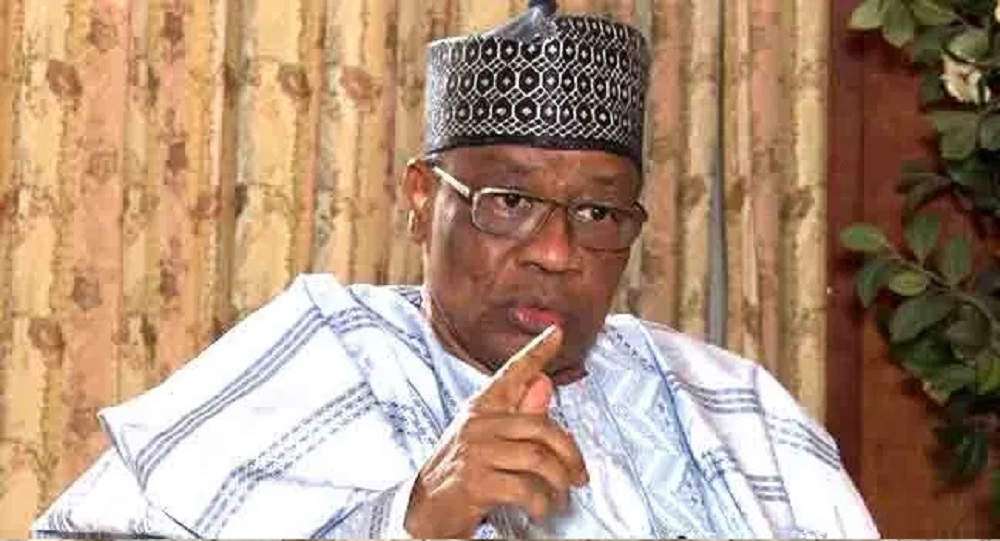Thirty-two years after the controversial annulment of Nigeria’s most significant democratic election, former Head of State, General Ibrahim Babangida, has finally admitted that Chief Moshood Kashimawo Olawale (MKO) Abiola won the June 12, 1993, presidential election. This confession, which appears in his newly released autobiography, A Journey in Service: An Autobiography of Ibrahim Babangida, is a momentous acknowledgment of a truth that many Nigerians have long held.
The disclosure, made public during the book launch in Abuja, has sparked widespread reactions, rekindling memories of a pivotal period in Nigeria’s history.
The book reviewer, former Vice President Yemi Osinbajo, highlighted Babangida’s words, describing them as a definitive answer to a long-contested question. Babangida, often referred to as the “evil genius” due to his political maneuvering, wrote, “Although I am on record to have stated after the election that Abiola may not have won the election, upon further reflection, and a closer examination of all available facts, particularly the detailed election results which are published as an appendix to this book, there was no doubt that MKO Abiola won the June 12 elections.”
The Weight of Babangida’s Admission
For many Nigerians, this admission is both significant and painful. The annulment of the June 12 election, widely regarded as the most free and fair election in the nation’s history, plunged Nigeria into political turmoil. The election, which saw Abiola of the Social Democratic Party (SDP) triumph over Bashir Tofa of the National Republican Convention (NRC), was annulled by Babangida’s regime on the grounds of national security concerns.
This decision led to widespread protests, a political crisis, and eventually, the installation of an interim government under Ernest Shonekan, which was later toppled by General Sani Abacha. Abiola himself was arrested in 1994 after declaring himself the rightful winner of the election. He remained in detention until his death in 1998, under suspicious circumstances.
Babangida’s belated recognition of Abiola’s victory, though commendable for its honesty, raises further questions about the motivations behind the annulment and the consequences it had on Nigeria’s democratic trajectory.
The Impact on Nigeria’s Political Landscape
Babangida’s admission reshapes the discourse on Nigeria’s political history and justice for the June 12 struggle. While the Nigerian government has since recognized June 12 as Democracy Day—under President Muhammadu Buhari’s administration in 2018—many argue that justice remains unfulfilled.
The acknowledgment of the election results in Babangida’s book adds another layer to this history, affirming what pro-democracy activists and political analysts have insisted on for decades.
The revelation also reinforces the narrative that the Nigerian military’s involvement in governance during that period was characterized by self-preservation and an unwillingness to relinquish power to democratic institutions.
It raises concerns about the fragility of democratic processes and the ease with which they can be undermined.
Moreover, this confession could deepen calls for posthumous recognition of Abiola as a legitimate president-elect. While Buhari’s administration honored him with the title of Grand Commander of the Federal Republic (GCFR), there remains a broader demand for official acknowledgment that Abiola was indeed Nigeria’s rightful leader in 1993.
Implications for Babangida’s Legacy
Babangida’s legacy has long been marked by mixed sentiments. While some acknowledge his role in instituting economic and structural reforms, others view him as the architect of some of Nigeria’s darkest political moments, particularly the June 12 annulment. His latest revelation does little to absolve him of blame but does offer an opportunity for historical clarity and potential reconciliation.
This admission may also signal an attempt by Babangida to shape how he is remembered in Nigerian history. By acknowledging the truth, albeit decades later, he positions himself as someone willing to confront past actions. However, for many Nigerians who lived through the struggles that followed the annulment, this confession may be seen as too little, too late.
The Way Forward
Babangida’s acknowledgment should reignite discussions on how Nigeria can strengthen its democratic institutions to prevent history from repeating itself.
The country must ensure that no individual or government has the power to arbitrarily overturn the will of the people. Electoral transparency, judicial independence, and respect for democratic processes must be upheld to prevent such crises in the future.
Additionally, this revelation should prompt a re-examination of Nigeria’s political history and a renewed commitment to honoring those who fought for democracy. The sacrifices of pro-democracy activists, journalists, and ordinary Nigerians who stood against the annulment should not be forgotten.
Babangida’s admission that MKO Abiola won the June 12, 1993, election is a historic moment that reaffirms the truth that many Nigerians have always known. While it does not undo the harm caused by the annulment, it provides an opportunity for reflection and a renewed call for accountability and democratic integrity in Nigeria.
As the nation continues to navigate its democratic journey, this revelation should serve as a reminder of the importance of upholding the will of the people.
True democracy thrives not just on the conduct of free and fair elections, but on the unwavering commitment to respecting their outcomes

